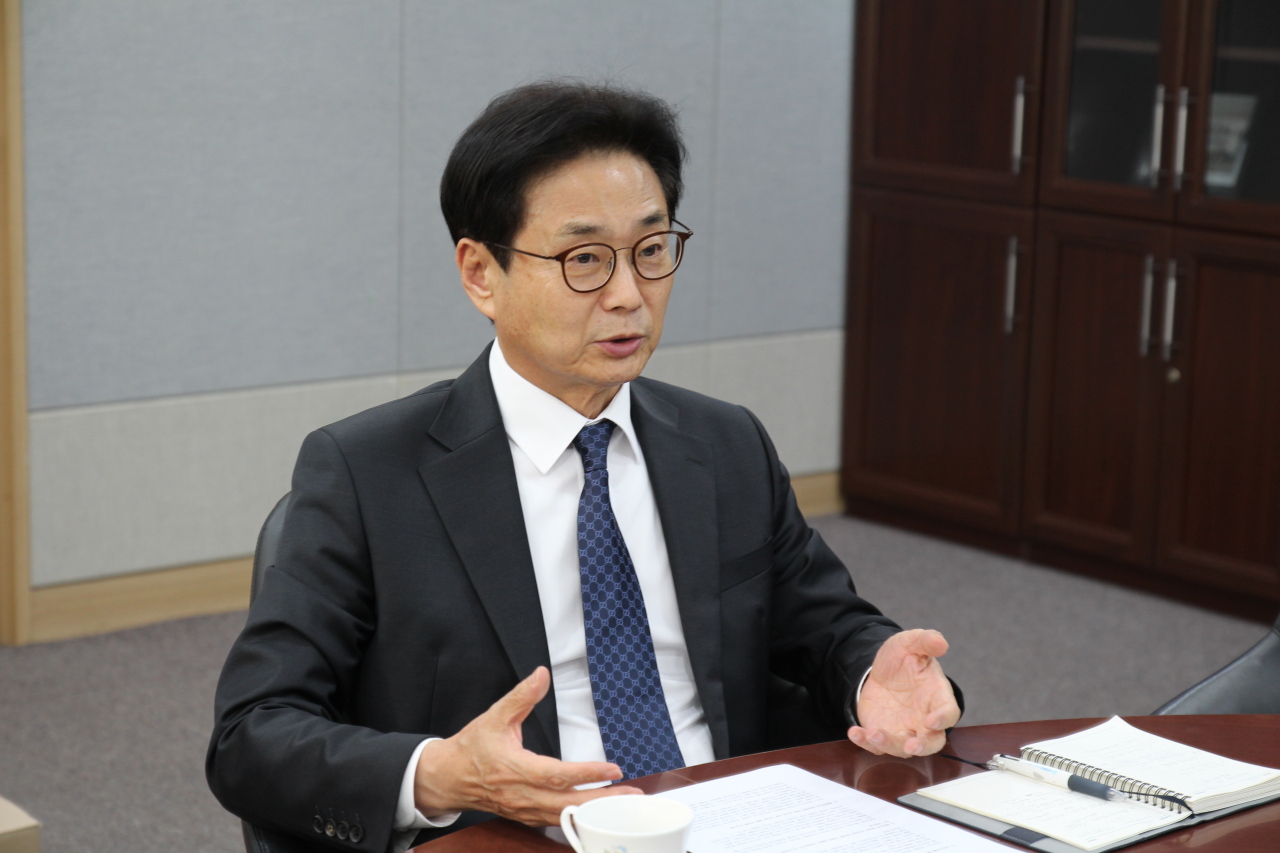 |
Won Hee-mok, Chairman of the Korea Pharmaceutical and Bio-Pharma Manufacturers Association (KPBMA) |
The year 2021 was monumental for South Korea’s pharmaceutical and biopharmaceutical industries, as they set a number of records. The country rolled out four new drugs, the most in a year since the first domestically-developed new drug came to light in 1999. Companies also licensed out technologies worth 13 trillion won ($10.9 billion) and exported drugs worth over 10 trillion won.
Big firms such as Samsung Biologics, SK bioscience and Celltrion are taking the lead in making the country’s presence felt on the global stage.
But to become a pharmaceutical powerhouse, South Korea needs to provide more financial support, said Won Hee-mok, chairman of the Korea Pharmaceutical and Bio-Pharma Manufacturers Association.
“The level of technology and talent, as well as the infrastructure for research and development and production is on par with other leading countries. The industry’s overall capability is considered to have competitiveness against other global big pharma companies,” he said in an interview with The Korea Herald.
“As the industry requires a colossal amount of capital, we can become a pharmaceutical powerhouse on the back of blockbuster drugs if enough financing power close to that of global big pharma is provided.”
A blockbuster drug refers to a pharmaceutical product that has sales of over $10 billion worldwide.
The KPBMA leader pointed out that Korea’s production capacity of biopharmaceuticals is the world’s second largest with over 330,000 liters, which is responsible for 9.1 percent of all production worldwide. The country’s number of pipelines for new drugs jumped to 1,477 in 2021 from 573 in 2018, he added.
Citing the Korea Institute of Science and Technology Evaluation and Planning’s report in 2019, Won also mentioned that the Korean biohealth industry’s level of technology was only about 3.8 years behind the US, which is considered to be the best in the business.
“I think Korea is moving to the center of the global market from the outside. In fact, we are taking actions to set up footholds in the leading overseas markets and establishing strategic plans,” said Won.
The KPBMA leader spotlighted the need to launch a government-led mega fund of 5 trillion won to create an environment that allows companies to complete the development of blockbuster drugs while supporting innovative pipelines and clinical trials. He added that the government’s support budget for the private sector’s research and development should be doubled from its current amount.
“Mergers and acquisitions are key to expanding the size of companies. Of the top 10 global pharmaceutical firms, seven grew via major M&As in the last 20 years,” he said.
“It is necessary to immediately establish and implement a national M&A support strategy to foster global leading companies in the pharmaceutical-bio industry.”
Having served as a representative of the 18th National Assembly from 2008 to 2012, Won stressed the importance of setting up a presidential committee that can lay out mid- to long-term strategies, control each ministry’s policies related to the biopharmaceutical industry, and effectively coordinate them.
“There is a shortage in the number of regulatory personnel for the development of new drugs compared to health care regulators in advanced countries,” he said.
“The number of regulatory personnel in the US is 8,051. Korea has 228. In order to increase the success rate (of new drugs), the manpower should be greatly expanded for advisory practices and approval reviews of clinical trials.”
With the upcoming presidential election, Won said he expects the country’s next leader to reaffirm that the country’s pharmaceutical and biopharmaceutical industries are the businesses of the future, which will act as social safety nets to protect the public. Therefore, he hopes that the next president will implement and carry out proper policies to nurture these industries.
By Kan Hyeong-woo (
hwkan@heraldcorp.com)








![[Today’s K-pop] Blackpink’s Jennie, Lisa invited to Coachella as solo acts](http://res.heraldm.com/phpwas/restmb_idxmake.php?idx=644&simg=/content/image/2024/11/21/20241121050099_0.jpg)